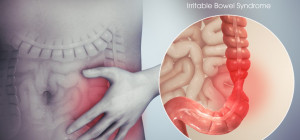Has your child recently developed one or two cavities somewhat unexpectedly? Do they spend a lot of time in front of the TV or playing video games? It’s just possible this could be to blame if recent research carried out in Japan is anything to go by. Pediatric dental care has become increasingly sophisticated over the past few years. This is with the use of many preventative dental treatments such as silver diamine fluoride and dental sealants.

Despite this, childhood tooth decay is still all too common and there’s been very little research into the possible link between cavities in childhood and lifestyle habits. This Japanese survey covered more than 2000 school children from five different elementary schools. Interestingly the study found that the percentage of students with cavities and who spent less than two hours a day online or playing games or watching TV was 8.6%.
For students spending between 2 to 4 hours on these activities, the percentage with cavities increased to 9.8%. This is while 15.4% of students spending more than four hours a day had tooth decay. This appears to demonstrate that the percentage of children with cavities increases with the time spent playing video games or watching TV. The study also looked at other lifestyle habits such as how many hours sleep a child got per night and whether they ate breakfast.
The percentage of children with cavities increased for those receiving less than optimal eight or nine hours of sleep a night. Children who didn’t regularly eat breakfast were also more likely to have tooth decay. It seems as if inconsistent dietary habits and lifestyle habits, as well as increased exposure to video games and TV, can all affect the development of tooth decay.
According to the researchers, when kids are playing video games or are involved with other media they are more likely to be excited. If they are stressed due to not having eaten recently or from a lack of sleep, they are less likely to produce sufficient saliva. A dry mouth makes it easier for tooth decay to take hold. When people are more relaxed or less anxious or stressed, they tend to produce more saliva which helps prevent cavities from forming.

The researchers point out that although it’s important to focus on oral hygiene, is just as vital to establishing a good routine and a healthy lifestyle to help prevent cavities. As children get older it can become more difficult to persuade them to stick to a good oral hygiene routine. This is especially as they become busier and more independent. Hopefully, by this age, they will have built up a good relationship with their pediatric dentist.
This is because their help can be very useful when coping with the teenage years. A pediatric dentist can talk to them about good dental health and why they need to take care of their teeth. They will be able to explain how best they can do this, especially as it only takes a few minutes each day to properly brush and floss. A pediatric dentist can stop stressing about why dental care is so important at all ages.
This is particularly if they want to have an attractive smile during their teenage years and beyond. If your teen is spending too long gaming and is forgetting to brush their teeth before they go to bed, they may benefit from a gentle reminder as to why this is so important. During this time teens may also take up other habits that will affect their dental health.
Being aware of these potential problems could help open some frank discussions on how to protect their dental health.
Smoking
Unfortunately, smoking is still popular amongst teens but can be hugely detrimental to dental health. It increases the risk of developing gum disease or periodontal disease, and the risk of developing oral cancer. People who smoke are much more likely to develop these conditions and gum disease is a common cause of tooth loss.
If these problems don’t resonate with your teen then it’s worth reminding them that smoking will stain and discolor their teeth and give them permanently bad breath.
Drinking Soda
Sodas and sports beverages typically contain an excessive amount of sugar and may often be highly acidic. This can erode tooth enamel, especially if your teen sips a soda over a period of hours which will maximize the damage to their teeth. If you can’t persuade them to cut down on their soda consumption, encourage them to drink through a straw and to rinse their mouth afterward with plain water.

Making Poor Food Choices
As a parent, you probably spent years trying to encourage your child to eat healthily but this may all go out the window when they hit their teens and are constantly on the go. At this age is often easier for them to grab something that will provide a quick burst of energy rather than taking the time to have a proper meal. If this sounds familiar, encourage your child to eat properly.
Make sure you have foods that are easy and quick for them to eat such as cheese, nuts and plain yogurt, as well as fresh fruit and raw vegetables.
Eating Disorders
Thanks to the Internet and social media, the pressure to look good has never been greater for today’s teens. Consequently, many are concerned about gaining weight and may develop eating disorders. Bulimia is a condition that creates the need to binge eat, followed by vomiting, exposing teeth to strong stomach acids that will soon begin to erode them. Any dentist can tell if a teenager has this condition simply by looking at their mouth.
If they do, a good pediatric dentist will be able to work with your teen and other medical specialists helping them overcome their eating disorder. They can provide the correct restorative treatments for teeth damaged by bulimia.
Oral Piercings
Oral piercings may look cool but come with a significant risk of tooth damage and infection. Often people with oral piercings will have chipped or cracked teeth and may need fillings, crowns or even root canal therapy. Oral piercings can easily become infected, especially as the mouth is full of bacteria.
Bruxism Caused by Stress
Bruxism is a nocturnal habit where sufferers clench and grind their teeth and it’s frequently associated with stress. Teenagers are often under stress, particularly during exam time. If they’ve complained about waking up with an aching jaw make an appointment for them to see their pediatric dentist. Also do so if they have chronic headaches or if their teeth look chipped or worn down.
Often bruxism is simply treated with a custom-made night splint that your teenager will wear during sleep to protect their teeth.







